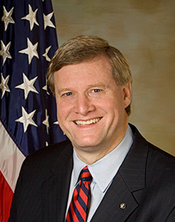December 2006 - “I am committed to getting the cranes and derrick standard through before the end of this administration.” So stated Ed Foulke, OSHA chief, at a meeting October 11, of the Advisory Committee on Construction Safety and Health (ACCSH) in Washington, DC.

Foulke, who was appointed Assistant Secretary of Labor for Occupational Safety and Health in April this year, acknowledged that OSHA had not moved as quickly as it might since the Cranes and Derricks Advisory Committee (CDAC) completed its work on the revision of Subpart N (1926.550) of Chapter 29 of the Code of Federal Regulations over two years ago.
While his goal of seeing the standard published on his watch would “take some doing”, he told the committee, “Whatever I have control over and I can push along, you have my word I am going to do that.”
The revised standard, which includes a requirement for crane operators to be certified, would be helpful to industry and would save lives, Foulke said. “This is an opportunity we have and we’re going to take it.”
He noted that, in this 35th anniversary year of the founding of OSHA, workplace deaths has dropped to one-third of their 1971 level, while the US workforce had doubled during the same period. “However, one fatality is one fatality too many,” Foulke said, “and our goal has to be zero.” Of the 5,700 fatalities recorded in 2005, over 20% occurred in construction. One-third of these were the result of falls, many of them in residential construction, “one of the hardest areas” to get access to, said Foulke.
While underlining the resources that OSHA would continue to make available to employers, Foulke had a stern warning for any employer that sought to shirk their responsibilities. “Those employers who snub their noses at us when we have our hand out to help them are going to get to know us upfront and personal,” he said. “I have a little over two years, and my goal is to make OSHA the best it can be.”